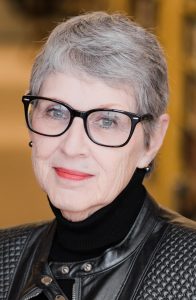Imagine a distinguished, elderly attorney in a dark-paneled office. A clutch of potential inheritors is seated around his desk. There is tension in the air as the lawyer clears his throat to announce the deceased’s last wishes.
The “reading of the will” is the stuff of drama but in real life, no state requires one. Making a will, however, is a straightforward legal process based on clear communication and thoughtful planning.
August is Make a Will Month, and this is its last day, so if you are one of the sixty-eight percent of Americans who doesn’t have a will, at least you are not alone. You are, however, creating possibilities for uncertainty and conflict that can affect your family’s future well-being.

The Dance of Death: The Antiquary’s Last Will and Testament, T. Rowlandson, 1816 (Image from Wikimedia Commons)
When it comes to making a will, knowing the law is important. In Kentucky, for example, state law recognizes holographic wills. In other words, the entire document must be handwritten, signed, and dated by the maker of the will. Typing and signing a will is not enough.
Murray attorney William C. (Chip) Adams believes there are three barriers to overcome in getting a will started.
“The hardest thing to do,” he said, “is make an appointment.”
The second barrier? Actually walking into an attorney’s office, once an appointment is made.
“Number three is coming back and signing it,” according to Adams.
Every step has an emotional component, but Adams contends that, in the end, clients are relieved. “I’m so glad I finally did this,” is a common reaction.
Another Murray attorney, Sarah Coursey Jones agrees. “It’s human nature to procrastinate about unpleasant thoughts,” she explained.
For example, parents with young children may not want to contemplate the idea of both of them dying and naming a legal guardian. If the unthinkable happens, however, it is best for children to be cared for by whoever the parents deem to be most suitable. Grandparents, for instance, may be hampered by age, or medical conditions. Other relatives, or even dear friends, might be a better choice.

Adult children might avoid discussion of wills with elderly parents because they do not want to be suspected of having mercenary intent, but waiting too long to make a will can have consequences. Those suffering from serious illness or dementia may not have the decision-making capability to make their bequests made official in a will.
In working with clients, Adams’ goal is to prepare a will that works up until the day a person dies. “It’s a living document, a fluid document,” he declared. “It can be changed at any point, when circumstances change.”
The most difficult will to prepare can be what Adams calls the “yours-mine-ours” family, where there are children and assets from different relationships to be accounted for.
“You can’t change an existing will yourself by handwritten notes,” he warned, because that would make the document invalid.
Naming an executor – the individual who carries out one’s last will and testament and ensures that stipulations and wishes of the deceased are carried out properly – is another important decision. Sarah Coursey Jones stressed the importance of letting the executor know where the will is and to be clear about whether the person is going to be able to perform the necessary tasks.
“Sometimes it’s easy, and sometimes it’s not,” she remarked. “Siblings are sometimes at each other’s throats.”
Murray State University’s Executive Director of Development, Tina Bernot, explained that planned gifts are another aspect of thinking through the provisions of a will. “I encourage people to think of the gifts made in a will as legacies,” she said. “They are thoughtful, financially sound, and are a way to give back to an organization.”
These legacies go beyond money to include assets such as real estate, fine art, valuable historic books and documentation.
“But it is vitally important,” Bernot declared, “to talk to the organization in advance.”
“Sometimes donors prefer to keep their intentions private, but others fund gifts in their lifetime,” she said. “They may start a scholarship fund now, with the rest of the gift coming later.”
“More and more, we are seeing a trend toward celebrating a gift now,” she declared
Whatever the reason for not having a will – too busy, lack of wealth or assets, aversion to thoughts of mortality, right now is a good time to make a plan for the unthinkable.
Begin by listing your assets and investments; reviewing all your beneficiary designations of insurance policies and IRA accounts, etc. If you already have a will, take another look and update it, as needed. Make sure the executor is still willing to take on that responsibility and consider including a charitable organization in your bequests.
If the thought of a will seems too serious, a Rowan Atkinson sketch on the reading of the will might be just what an attorney would advise to cheer you up.
















